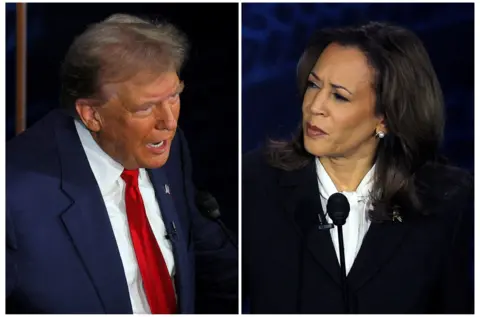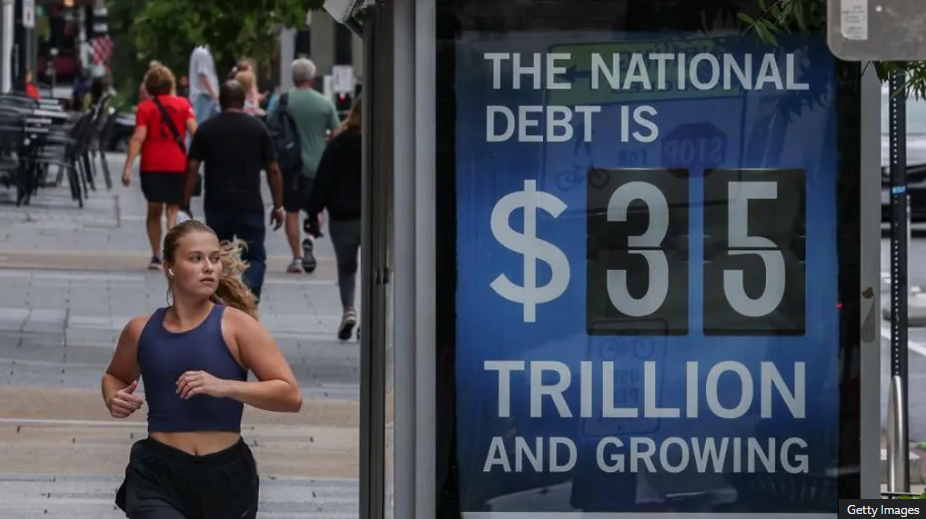US debt would increase under Harris and soar under Trump – study
Donald Trump’s campaign proposals would increase the US national debt by double the amount Kamala Harris’s would, according to a new analysis by a non-partisan group.
Both candidates would add trillions to the national debt if their campaign pledges were enacted, according to the Committee for a Responsible Federal Budget. Trump would add $7.5tn and Harris would add $3.5tn, the group said.
The think tank warned on Monday that neither party appeared willing to address the country’s growing $35.6tn debt.
Both candidates have, at least partially, backed extending major tax cuts that the US passed during Trump’s first term. These cuts form the biggest chunk of this hypothetical additional debt.
 Reuters
ReutersParts of that Trump tax plan are due to expire in 2025, setting up a tough tax fight for whoever wins the White House in November. Trump has vowed to extend the tax package in its entirety.
He has also proposed new cuts which would eliminate taxes on overtime, social security and tips income, and grant domestic manufacturers an ultra low corporate rate of 15%.
He said he plans to raise money by imposing widespread tariffs – a tax on goods imported into the country, which could raise $2.7tn, according to the CRFB.
Harris, by contrast, has pledged to roll back tax cuts for the wealthy and raise the 21% rate for corporations, which was meant to be permanent, to 28%.
But she would extend the Trump cuts for Americans earning less than $400,000 and has backed his idea of eliminating taxes on tips.
Harris has also put forward a number of other proposals for tax relief, aimed at families with children and start-ups, while endorsing plans to subsidise child care and health care with hundreds of billions in new spending.
Many of their proposals would have to be approved by Congress, and it remains unclear how much either candidate would be able to muscle through the divided legislative branch which has ultimate power over taxes and spending.
“Both candidates are wanting to get elected so, you know, tax cuts sound better than higher taxes so I think that’s what you’re hearing. Whether or not all of that gets through we’ll see,” said Jimmy Lee, the founder and CEO of the investment firm Wealth Consulting Group.
But Mr Lee said he thought investors were not “paying enough attention” to the threat from spiralling borrowing.
The US has long been able to borrow cheaply, thanks to strong demand for its debt among private investors, which has helped to keep interest rates relatively low.
But some analysts have warned that the US may be facing higher costs in the future.
The ratio of US debt to its economy or GDP, gross domestic product is already one of the highest among major economies in the world.
It stands at about 120%, according to the IMF. That compares to 144% in Italy, 110% in Spain, 101% in the UK, 106% in Canada, 77% in China, 67% in Germany and 56% in Australia.
